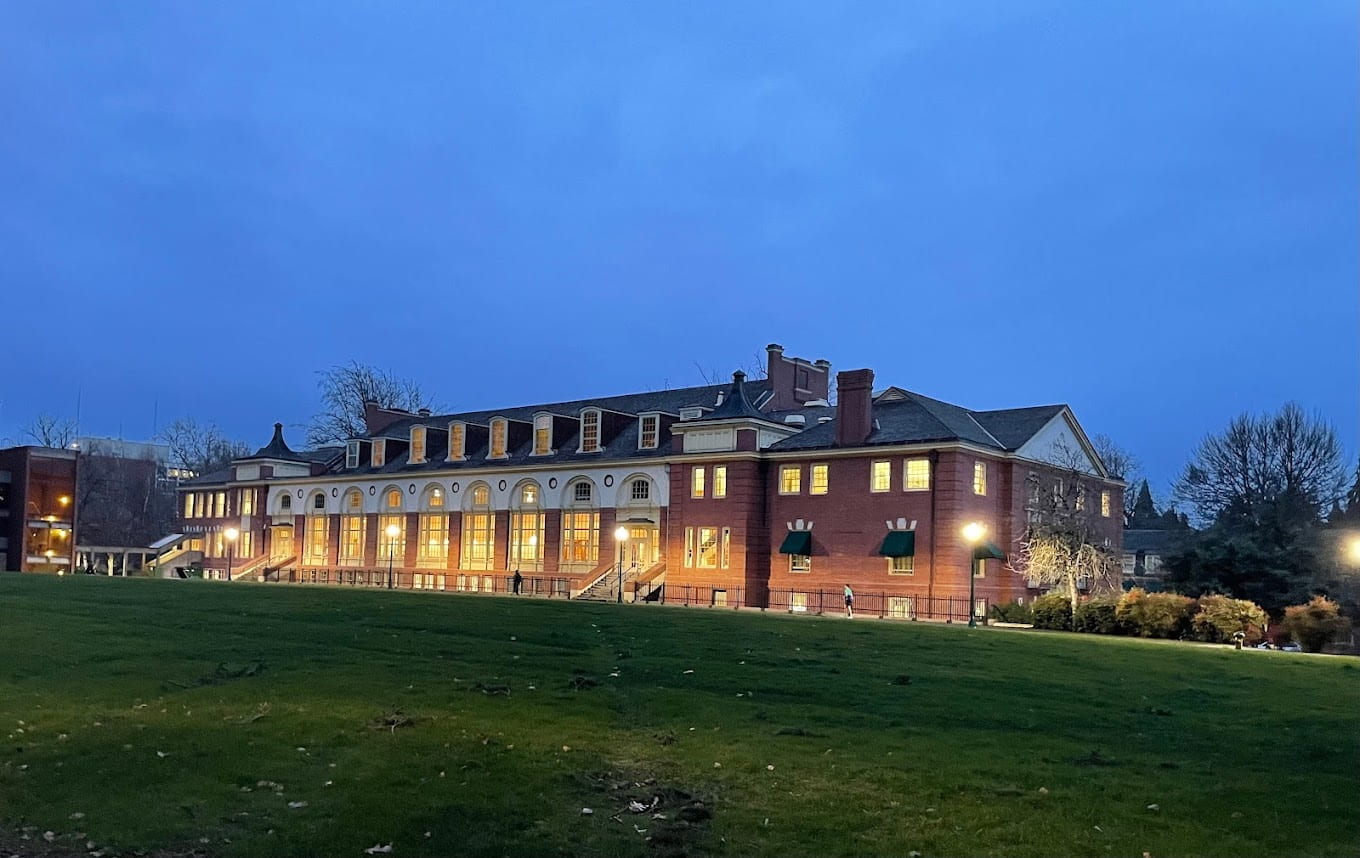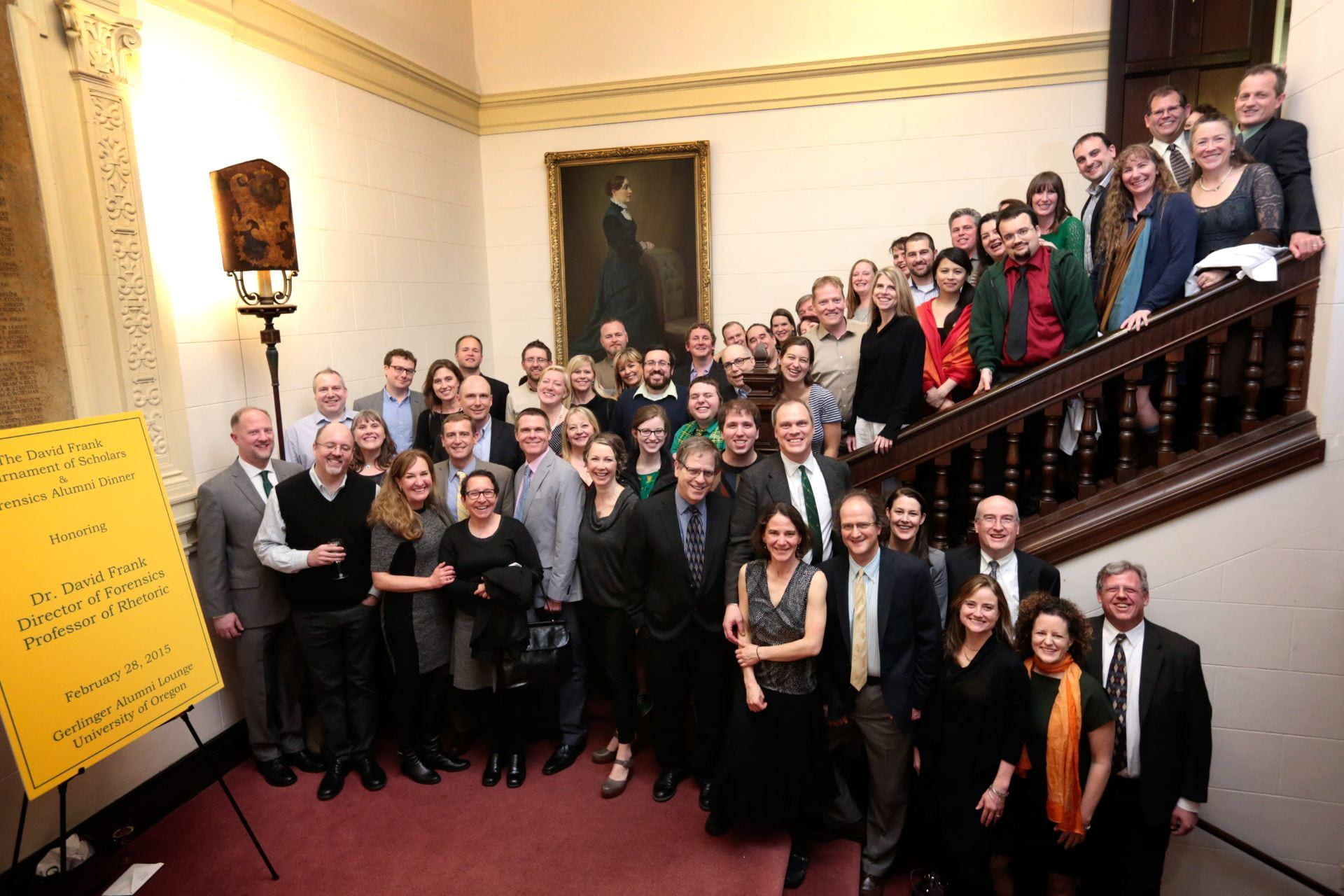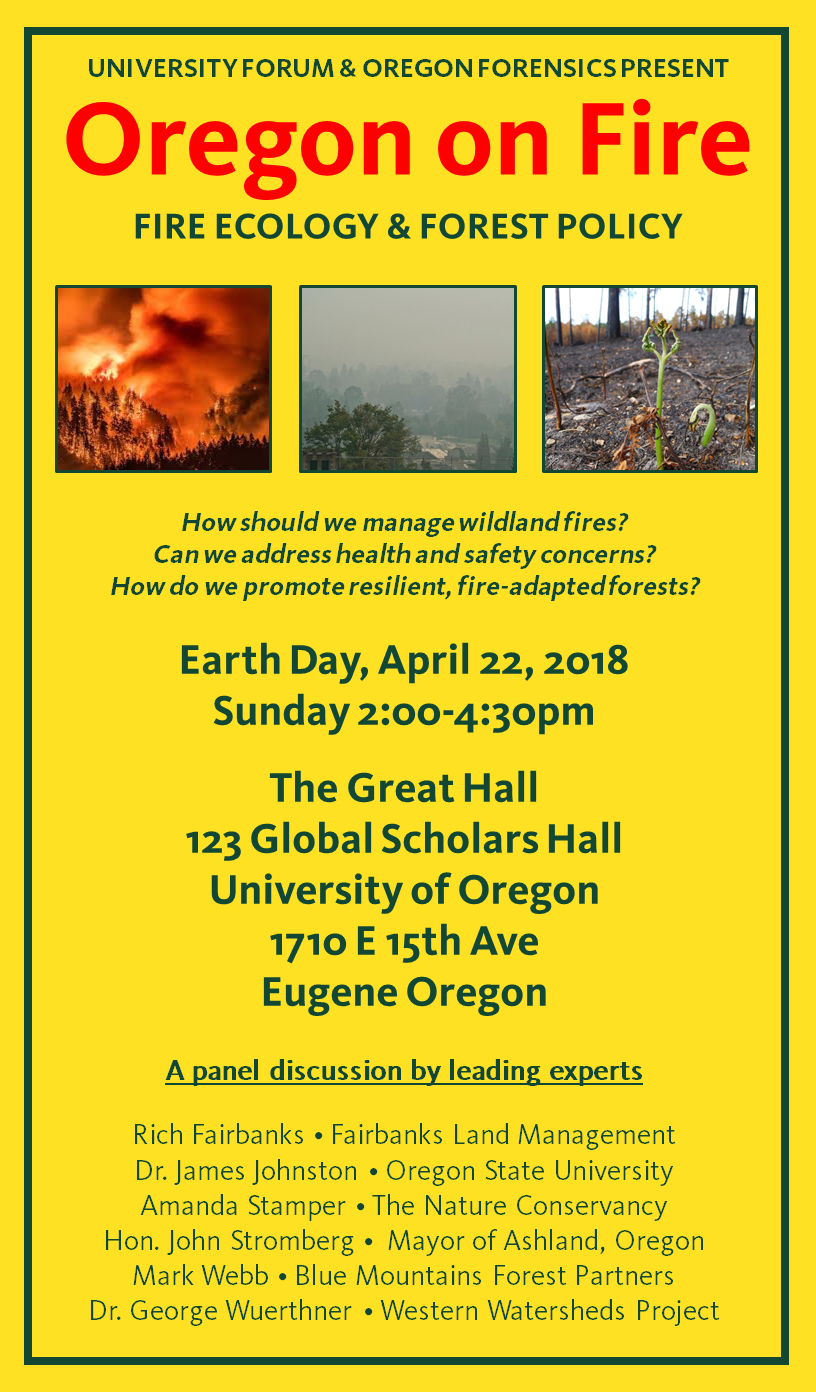Deservedly proud of our continuing successes we nevertheless fully realize our future success is never guaranteed. We must always provide a quality experience for students that prepares them to succeed in forensics and for the rest of their lives. We must continue to innovate and experiment and prepare and practice if we are to improve and then try even harder if we are to excel.
Alumni can play a critical through our vocal and sustained support.
Let me describe three priority areas important to the future of Oregon Forensics that I identified in consultation with Dr. Frank, current students, alumni, UO Advancement, and leaders in the Clark Honors College.
Recruitment
Every year we recruit new students to compete for Oregon and every year we aim to extend the reach of our recruitment efforts. Perhaps there is a student in your family we should recruit. Maybe you know of others students we should encourage to consider Oregon.
Most recruiting arises from interactions with students at tournaments and with their high school teachers. We also recruit promising students at our summer debate institute.
Such relatively inexpensive recruiting efforts are important and valuable, and we will continue them.
But they do not address our greatest recruiting barrier: We are unable to offer scholarships.
Peer programs use scholarships to recruit students, including the best students from Oregon. For instance, we could not match offers Georgetown gave to an exceptional debater from southern Oregon last year. Worse, every year we lose promising new students forced to work rather than compete or whose families can no longer help them attend.
Even more, we are at a disadvantage recruiting the fantastic debaters coming through the Urban Debate Leagues. Often the first students in their families to attend college, these debaters, from low-income families and often persons of color from out of the state, will inevitably thrive but they won’t choose Oregon when ASU and Oklahoma offer significant scholarships.
Our lack of scholarships disproportionately impedes our efforts to revitalize policy debate because high school policy debate in Oregon for many years was on life support. The best out-of-state debaters face increased costs to attend and lack easy access to most scholarships provided by the university. The greater rigor required of policy debate also disproportionately weeds out students who must work.
Oregon Forensics should be in a position to offer a range of difference-making scholarships to students who want to compete for Oregon.
Competition
Many of the component costs of competition – van rentals, hotels, plane tickets, fees, etc. – continue to increase every year. Our program growing and few tournaments offer all the events that interest our students such that several weekends each year we have different groups of students at different tournaments in different cities.
We successfully lobbied the ASUO for a 40% increase in our base travel budget for 2015-2016 but our program has more than doubled in size and additional near-term increases in support are unlikely. Every year the committee asks us what we are doing to raise money for the program and every year we see other programs denied increases or receiving cuts because of a failure to supplement funds authorized by ASUO through active fundraising.
Changes in university policy mean that we can no longer make special requests to fund national championship tournaments that require qualification. There are good reasons for the underlying changes but one unfortunate budgetary consequence is that we must find another $12,000-$15,000 each year for nationals or remove several tournaments from the schedule.
Infrastructure
The social capital and the actual capital that arises from networks of strong relationships on campus, our incorporation into the Clark Honors College, the relative protection afforded by a faculty line: These and other such factors constitute what I call the “infrastructure” of Oregon Forensics.
As students competing we probably did not appreciate the infrastructure enabling our experiences. This combination of financial and non-financial support, while not directly used for competition, is absolutely crucial y if we are to realize the goal of making our the Oregon Forensics a permanent campus presence.
Specific infrastructure initiatives include securing and outfitting a better squad room for the team. We have needs for additional computers, and instructional technologies such as software and digital audio and video equipment.
The single step most likely to ensure the permanence of Oregon Forensics is the creation of an endowed chair for the Director of Forensics.













